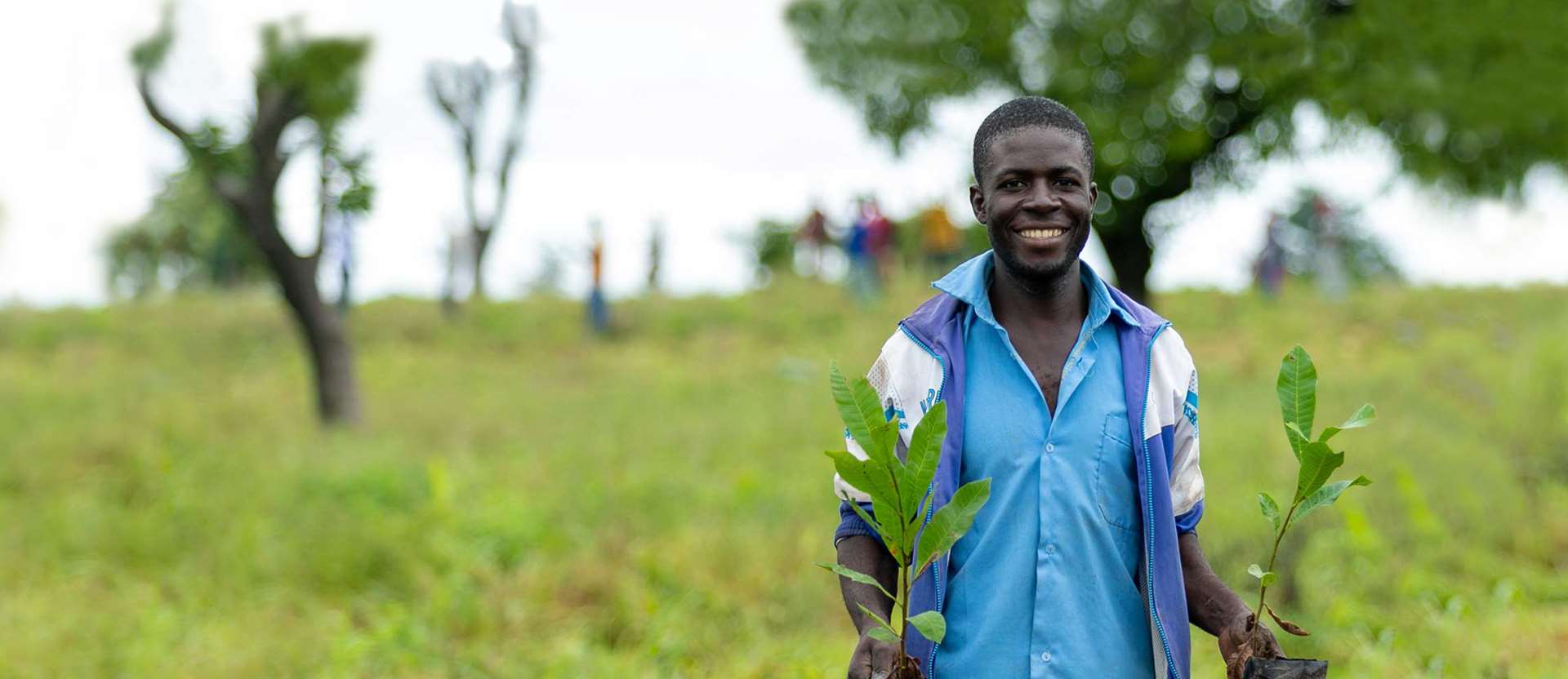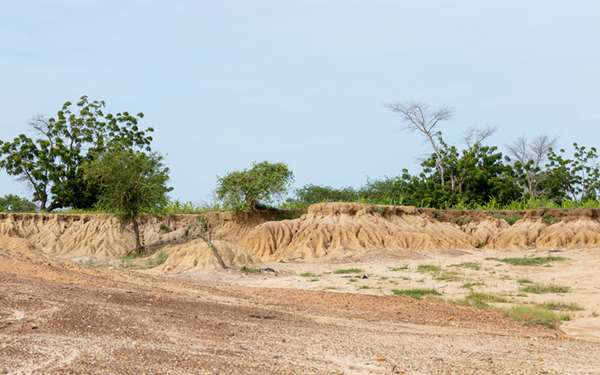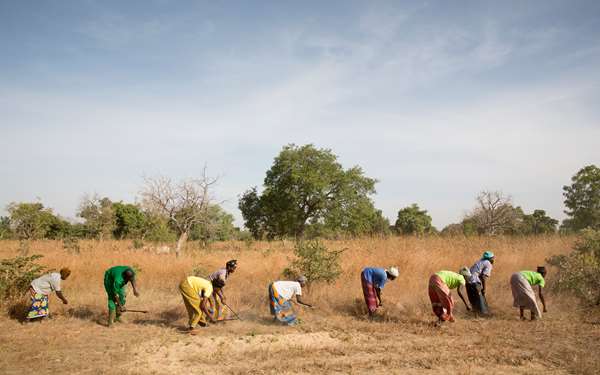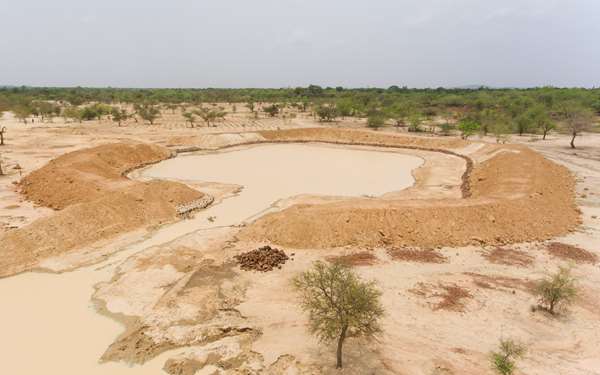
Restoring the environment
Read about our natural resource management approach.We support farming families to use trees to improve the fertility of the soil and manage land in a way that helps them deal with the effects of the climate crisis. This helps keep the environment healthy and enables smallholder farmers to grow more food, now and in the future.
This is our natural resource management approach.
Why is this needed?
In the drylands of Africa, land is rapidly losing its fertility. Soil that was once rich in nutrients is no longer able to support life. This is made worse by the effects of the climate crisis. As a result, local people – farming families who rely on the land - can’t grow enough food anymore, trapping more and more people in poverty.
Every day, millions of people’s lives and livelihoods are devastated by the climate crisis. That’s why we support them to adapt today, and influence change for tomorrow.
Over the next five years until 2027, we'll be supporting 4,000 communities to manage their landscapes - read our new 5-year strategy to learn how we'll achieve this.


How do we help?
We grow and protect trees so that people can live off them for years to come. We don’t just plant trees and walk away. We work with local farmers to make sure they have the training and tools needed to make each tree thrive.
Trees mean stability. Their roots stop the ground being washed away in floods. They also store water when there’s no rain and help the land to stay fertile so other crops can grow. Trees also protect the planet, absorbing carbon dioxide, a cause of the climate crisis.
Fire management
The communities that we work with need to find firewood to cook their food. But with more trees being cut down to make room for things like farmland, this is becoming difficult. We work with local people to make and distribute a new type of cooking stove that uses half as much wood as traditional stoves.
We train people on how to prevent bushfires from spreading with techniques like building firebreaks. This is vital in Africa's drylands where bushfires can spread rapidly.

MEET THE CASHEW FARMERS

Conserving water
In the drylands of Africa, rain only comes over a short period of time known as the rainy season. For the rest of the year, the climate is hot and dry and water is limited and trees and crops often fail to grow. We make sure that communities have the training and tools they need to conserve water to use all year round.
In Burkina Faso, we built 145 water-conserving pits in the soil, known as boulis, which can each hold as much water as an Olympic swimming pool.





